
Overview
Apparel, piece goods, and notions merchant wholesalers industry involves the distribution and sale of various clothing and textile products. This industry encompasses wholesalers who purchase apparel items, such as clothing, footwear, and accessories, as well as piece goods, which are fabrics and textiles used in the production of garments.
GAO’s RFID, BLE, IoT, and drone technologies have helped its customers in apparel, piece goods, and notions merchant wholesalers industry to improve their work processes, their operations and productivity by better management of their staff, materials and operational equipment such a sewing machines, cutting machines, embroidery machines, heat press machines, buttonholing machines, serger machines, fabric inspection machines, ironing and pressing machines, fabric spreading machines and fabric rolling machines.
Ranked as a top 10 global RFID supplier and based in New York City and Toronto, GAO RFID Inc. offers a wide choice of RFID (radio frequency identification) readers and tags at ultra-high frequency (UHF), high frequency (HF, including NFC) and low frequency (LF), BLE (Low Energy Bluetooth) gateways and beacons, and various RFID and BLE systems such as people tracking, asset tracking, access control, parking control, fleet management, WIP (work in progress), traceability. Such RFID and BLE products and systems, together with its IoT and drone technologies, have been widely used in apparel, piece goods, and notions merchant wholesalers.
Applications & Benefits of GAO’s RFID, BLE, IoT & Drones for Apparel, Piece Goods, and Notions Merchant Wholesalers
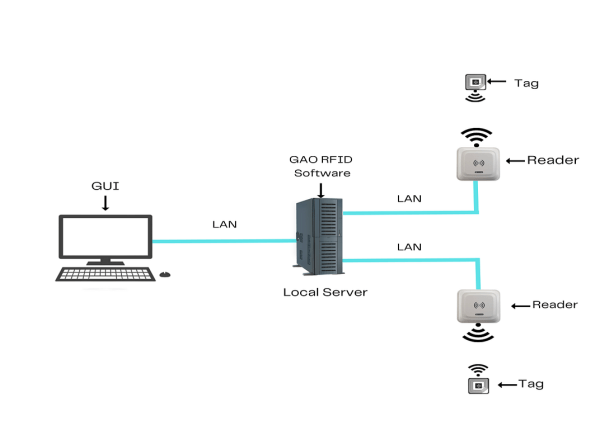 To satisfy its customers, GAO’s RFID or RFID Systems for apparel, piece goods, and notions merchant wholesalers industry are offered in 2 versions. One version is that its software is running on a local server that normally is on our client’s premise, and another version runs in the cloud. The cloud server could be GAO’s cloud server, client’s own cloud server or a cloud server from one of the leading cloud server providers such as Amazon Web Services (AWS), Microsoft Azure, Google Cloud, IBM Cloud (formerly SoftLayer), Oracle Cloud, RedHat, Heroku, Digital Ocean, CloudFlare, Linode and Rackspace. The above illustrates GAO system for sub-industry with its software running on a local server.
To satisfy its customers, GAO’s RFID or RFID Systems for apparel, piece goods, and notions merchant wholesalers industry are offered in 2 versions. One version is that its software is running on a local server that normally is on our client’s premise, and another version runs in the cloud. The cloud server could be GAO’s cloud server, client’s own cloud server or a cloud server from one of the leading cloud server providers such as Amazon Web Services (AWS), Microsoft Azure, Google Cloud, IBM Cloud (formerly SoftLayer), Oracle Cloud, RedHat, Heroku, Digital Ocean, CloudFlare, Linode and Rackspace. The above illustrates GAO system for sub-industry with its software running on a local server.
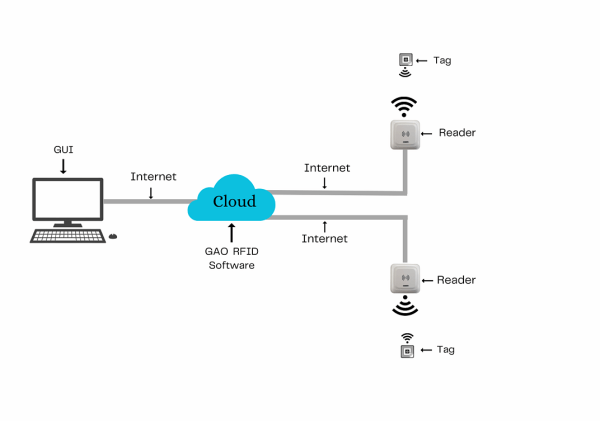 The above illustrates GAO system for apparel, piece goods, and notions merchant wholesalers with its software running in cloud.
The above illustrates GAO system for apparel, piece goods, and notions merchant wholesalers with its software running in cloud.
GAO’s RFID and BLE technologies, consisting of RFID readers, RFID tags, BLE gateways, BLE beacons, software, cloud services and their systems, have the following applications apparel, piece goods, and notions merchant wholesalers:
- Inventory Management: RFID tags attached to garments and other products allow wholesalers to track and manage inventory more efficiently. This helps in maintaining optimal stock levels and reducing stockouts.
- Product Authentication: RFID can be used to verify the authenticity of branded products and prevent counterfeiting in the supply chain.
- Supply Chain Visibility: RFID enables real-time tracking of products as they move through the supply chain, providing visibility into the location and status of goods at different stages.
- Shelf Replenishment: Retailers can use RFID to monitor the stock on store shelves and automatically trigger replenishment orders when items are running low.
- Loss Prevention: RFID can be employed as part of an anti-theft system to reduce shrinkage and theft in retail environments.
- Customer Experience: RFID can enhance the shopping experience by enabling interactive displays, smart fitting rooms, and personalized recommendations based on customer preferences.
- Garment Tracking and Sorting: RFID tags attached to garments can facilitate automated sorting and tracking in distribution centers, reducing processing time and errors.
- Return Management: RFID can help track the status of returned merchandise, improving the efficiency of the returns process and reducing processing time.
- Quality Control: RFID can be used to monitor the quality and condition of apparel and textiles throughout the supply chain.
- Product Lifecycle Management: RFID can provide data on the movement and usage of products, helping wholesalers optimize their product lifecycle strategies.
- Product Recall Management: RFID can enable rapid identification and retrieval of affected products during a recall event, improving the efficiency and accuracy of recalls.
GAO’s drone technologies find the following applications in the apparel, piece goods, and notions merchant wholesalers:
- Inventory Management: Drones equipped with RFID or barcode scanners can quickly and accurately conduct inventory counts in large warehouses, helping wholesalers maintain accurate stock levels and streamline their inventory management processes.
- Warehouse Monitoring: Drones can be used for monitoring warehouse operations, ensuring compliance with safety protocols, and identifying any operational inefficiencies or bottlenecks.
- Delivery and Distribution: Drones have the potential to revolutionize last-mile delivery in the apparel industry, providing faster and more efficient deliveries of small-sized goods to retail stores or customers’ doorsteps.
- Surveillance and Security: Drones can be employed for surveillance and security purposes, monitoring the perimeter of warehouses, distribution centers, and retail locations to detect any unauthorized access or potential security threats.
- Asset Tracking: Drones can assist in tracking the movement of high-value assets, such as expensive apparel items, during transportation or in large distribution centers.
- Environmental Monitoring: Drones equipped with environmental sensors can be used to monitor temperature, humidity, and other environmental conditions in warehouses to ensure the proper storage of sensitive apparel products.
- Marketing and Advertising: Drones equipped with cameras can capture unique aerial footage for promotional purposes, showcasing the size and scale of warehouses or distribution centers, enhancing marketing materials and brand image.
- Visual Merchandising: Drones can be used to capture aerial footage of retail store layouts and displays, providing wholesalers with valuable insights into visual merchandising effectiveness.
- Quality Control and Inspection: Drones can assist in inspecting goods for quality control purposes, allowing wholesalers to identify defects or damages in products before distribution.
- Surveying and Mapping: Drones can create detailed 3D maps and models of warehouses, distribution centers, and retail stores, aiding in space optimization and operational planning.
GAO’s IoT technologies, consisting of IoT sensors, sensors networks and systems, find the following applications in the apparel, piece goods, and notions merchant wholesalers:
- Inventory Management: IoT sensors can be integrated into warehouses and storage facilities to monitor inventory levels in real-time. This data helps wholesalers optimize stock levels, reduce stockouts, and improve overall inventory management efficiency.
- Smart Shelving and Displays: IoT-enabled smart shelves and displays can track the movement of products, identify popular items, and trigger automatic restocking orders when inventory levels are low.
- Supply Chain Visibility: IoT devices can track the movement and condition of products throughout the supply chain, providing wholesalers with real-time visibility and enabling them to make data-driven decisions for efficient logistics and distribution.
- Quality Control: IoT sensors can be used to monitor environmental conditions, such as temperature and humidity, during storage and transportation, ensuring that sensitive apparel products are handled and stored properly.
- Preventive Maintenance: IoT sensors installed in machinery and equipment can monitor performance and detect anomalies, enabling proactive maintenance and reducing downtime.
- Smart Packaging: IoT-enabled packaging can provide real-time information about a product’s condition during transit, ensuring that goods are delivered in optimal condition.
- Customer Engagement: IoT-powered smart mirrors and fitting rooms can enhance the customer experience by providing personalized recommendations and product information.
- Product Authentication: IoT-based authentication systems can help verify the authenticity of branded products and prevent counterfeiting in the supply chain.
- Energy Efficiency: IoT devices can be used to monitor energy consumption in warehouses and stores, helping wholesalers identify areas for energy savings and sustainability improvements.
- Predictive Analytics: By analyzing IoT-generated data, wholesalers can gain valuable insights into customer preferences, demand patterns, and market trends, enabling better forecasting and planning.
- Tracking Returns and Exchanges: IoT sensors can facilitate the tracking of returned items, streamlining the returns process and improving efficiency in managing customer exchanges.
- Smart Packaging and Shipping: IoT-enabled packaging can track the location and condition of products during shipping, ensuring timely and secure deliveries.
GAO Helps Customers Comply with Standards, Mandates & Regulations of Apparel, Piece Goods, and Notions Merchant Wholesalers
GAO RFID Inc. has helped many companies in apparel, piece goods, and notions merchant wholesalers to deploy RFID, BLE, IoT and drone systems and to ensure such deployments complying with the applicable industry standards, mandates, and government regulations:
RFID, BLE, IoT, & Drone Standards & Mandates
- EPC Gen2
- ISO 18000-6C
- ISO 14443
- ISO 15693
- Bluetooth 4.0
- Bluetooth 4.1
- Bluetooth 4.2
- Bluetooth 5
- Bluetooth 5.1
- Bluetooth 5.2
- MQTT (Message Queuing Telemetry Transport)
- CoAP (Constrained Application Protocol)
- OPC UA (Open Platform Communications Unified Architecture)
- DDS (Data Distribution Service)
- LoRaWAN (Long Range Wide Area Network)
- Sigfox
- FAA Part 107 (United States)
- EU Drone Regulations
- ISO 21384
US. Government Regulations for Apparel, Piece Goods, and Notions Merchant Wholesalers Industry
- Environmental Protection Agency (EPA) Regulations
- Fair Labor Standards Act (FLSA
- Occupational Safety and Health Act (OSHA
Canadian Government Regulations for Apparel, Piece Goods, and Notions Merchant Wholesalers Industry
- Hazardous Products Act
- Canada Border Services Agency (CBSA) Regulations
- Canadian Consumer Product Safety Act
GAO’s Software Provides API
GAO’s RFID and BLE software offers a free trial for both the server-based and cloud versions, and offers an API to the important systems in apparel, piece goods, and notions merchant wholesalers such as:
Personnel Management:
- Employee Onboarding and Offboarding: Managing the process of bringing in new employees and ensuring a smooth exit for departing employees.
- Time and Attendance Tracking: Monitoring employees’ working hours, leave, and attendance to ensure accurate payroll processing.
- Performance Management: Evaluating employee performance, setting goals, and conducting performance reviews to improve productivity and job satisfaction.
- Training and Development: Providing training programs and development opportunities to enhance employees’ skills and knowledge.
- Workforce Planning: Strategically planning for future workforce needs, including recruitment and talent retention strategies.
Equipment Management:
- Asset Tracking: Utilizing RFID or other tracking technologies to monitor the location and condition of equipment and machinery.
- Preventive Maintenance: Implementing regular maintenance schedules to minimize equipment downtime and extend its lifespan.
- Equipment Calibration: Ensuring that equipment is calibrated and maintained within specified parameters for accurate operations.
- Equipment Utilization Optimization: Analyzing equipment usage data to improve efficiency and minimize idle time.
- Equipment Safety and Compliance: Ensuring that equipment meets safety standards and regulatory requirements.
Access Control:
- Restricted Access Areas: Using access control systems to limit access to specific areas in warehouses or facilities to authorized personnel only.
- Visitor Management: Monitoring and controlling the entry of visitors to maintain security and record their presence.
- Biometric Access: Utilizing biometric technology, such as fingerprint or facial recognition, for enhanced security and authentication.
Warehouse Management:
- Inventory Control: Managing and tracking inventory levels, stock movements, and replenishment to prevent stockouts and overstocking.
- Order Fulfillment: Efficiently processing and fulfilling customer orders to minimize lead times and improve customer satisfaction.
- Picking and Packing Optimization: Implementing strategies to streamline the picking and packing processes to reduce errors and increase efficiency.
- Cross-Docking: Facilitating direct transfers of goods from incoming to outgoing shipments to reduce handling and storage time.
- Warehouse Layout Optimization: Organizing the warehouse layout to maximize space utilization and improve the flow of goods.
Supply Chain Management:
- Supplier Relationship Management: Managing relationships with suppliers to ensure timely deliveries and favorable terms.
- Demand Forecasting: Using data and analytics to predict demand patterns and optimize inventory levels.
- Transportation Management: Optimizing transportation routes and carriers to minimize transportation costs and delivery times.
- Vendor Compliance: Ensuring that vendors meet regulatory requirements and industry standards in their operations.
- Sustainability and Ethical Sourcing: Implementing sustainable and ethical sourcing practices to meet environmental and social responsibilities.
Other Applications:
- Product Lifecycle Management: Managing the entire lifecycle of products, from design and sourcing to distribution and end-of-life.
- Quality Control and Assurance: Implementing processes to maintain product quality and meet customer expectations.
- Customer Relationship Management (CRM): Managing interactions and relationships with customers to enhance customer satisfaction and loyalty.
- Data Analytics and Business Intelligence: Utilizing data analytics to gain insights into business operations and make informed decisions.
- Compliance and Regulatory Reporting: Ensuring compliance with industry regulations and reporting requirements.
GAO has integrated its RFID, BLE, IoT and drone systems with some of leading software and cloud services in apparel, piece goods, and notions merchant wholesalers industry. Below are some of popular software and cloud services in apparel, piece goods, and notions merchant wholesalers industry.
- BambooHR
- Infor CloudSuite HCM
- Workday HCM
- Oracle HCM Cloud
- Honeywell Access Control
- SAP Extended Warehouse Management
- Amazon Web Services (AWS
- Microsoft Azure
- Microsoft Dynamics 365
- Epicor ERP
- Salesforce Commerce Cloud
- IBM Cloud
GAO has worked with some of the leading technology companies in apparel, piece goods, and notions merchant wholesalers to provide integrated its RFID, BLE, IoT and drone solutions to customers. Here are some of the technology leaders in apparel, piece goods, and notions merchant wholesalers industry:
- Microsoft
- JDA Software
- Zebra Technologies
- NCR Corporation
- Epson
- Datalogic
- NetSuite
- Blue Yonder
- Centric Software
- PTC
- Cognex
- Avery Dennison
Case Studies of RFID Applications
Below are some RFID application cases in apparel, piece goods, and notions merchant wholesalers industry.
- Macy’s Inc.: Macy’s Inc., one of the largest department store chains in the United States, implemented RFID technology to enhance inventory management and improve operational efficiency across its apparel, piece goods, and notions distribution centers. RFID technology provided real-time visibility into inventory levels, enabling Macy’s to track the location and quantity of each item accurately.
- Gildan Activewear: Gildan Activewear, a leading manufacturer and distributor of basic apparel in Canada, implemented RFID technology to optimize its supply chain operations and enhance inventory management capabilities. RFID technology provided Gildan with real-time visibility into the movement and location of products throughout the supply chain, enabling better planning and coordination.
- Gap Inc.: Gap Inc. is a leading American retailer of clothing, accessories, and personal care products. The company implemented UFH RFID technology in its apparel wholesale operations to improve inventory accuracy, streamline supply chain processes, and enhance the overall customer experience. UFH RFID technology enabled Gap Inc. to achieve higher inventory accuracy, reducing stock discrepancies and minimizing stock outs and overstocks.
- Lululemon Athletica: Lululemon Athletica is a Canadian athletic apparel retailer known for its premium yoga and athletic wear. The company implemented UFH RFID technology in its apparel wholesale operations to streamline inventory management, optimize stock levels, and enhance the overall supply chain efficiency. UFH RFID technology allowed Lululemon Athletica to maintain accurate inventory counts, reducing discrepancies and enabling precise stock replenishment.
Many applications of RFID by GAO can be found here.
Case Studies of IoT Applications
Below are some IoT application cases in apparel, piece goods, and notions merchant wholesalers.
- Amazon Go: Amazon Go stores utilize IoT technologies, including computer vision and sensor fusion, to create cashier-less shopping experiences. The system tracks customers and their selected items, automatically charging their Amazon accounts upon exiting the store.
- Walmart: Walmart has implemented IoT-based inventory tracking and management systems in some of its stores. IoT sensors and RFID tags are used to monitor stock levels, improve inventory accuracy, and enhance supply chain efficiency.
- Zara: Zara, a global fashion retailer, uses RFID technology for inventory management in its stores. RFID tags are attached to garments, enabling real-time tracking of inventory levels and improving the accuracy of stocktaking processes.
- Macy’s: Macy’s implemented smart fitting rooms equipped with RFID technology to provide personalized recommendations to customers and improve the shopping experience.
- Delta Air Lines: Delta Air Lines utilizes IoT sensors to track the location and condition of baggage throughout the luggage handling process, ensuring smoother baggage handling and reducing the risk of lost luggage.
- Starbucks: Starbucks introduced IoT-enabled coffee machines that are remotely monitored to proactively detect maintenance issues and reduce downtime.
- Lululemon: Lululemon, a Canadian athletic apparel retailer, has implemented RFID technology to improve inventory accuracy and streamline its supply chain operations. RFID tags are used to track products from manufacturing to distribution centers and stores, leading to enhanced inventory visibility and reduced stockouts.
- Canadian Tire: Canadian Tire, a Canadian retail company, has adopted IoT-based smart shelving systems in some of its stores. These shelves use IoT sensors to monitor product levels and automatically trigger restocking orders when inventory is low, ensuring products are readily available for customers.
- Hudson’s Bay Company (HBC): HBC, a Canadian department store chain, has used IoT technology in its stores to enhance customer experiences. IoT-powered smart mirrors and fitting rooms provide personalized recommendations and product information to shoppers.
- Roots: Roots, a Canadian clothing brand, has implemented IoT-based smart displays in its stores. These displays use beacons and sensors to deliver targeted promotions and offers to customers’ smartphones based on their location and preferences.
- Indochino: Indochino, a Canadian made-to-measure menswear retailer, has implemented IoT-powered body scanners in its showrooms. These scanners capture precise body measurements, enabling customized garment fittings for customers.
- Canada Goose: Canada Goose, a Canadian luxury apparel brand, has used RFID technology in its stores to combat counterfeit products. RFID tags are embedded in products to verify their authenticity and provide customers with product information.
Case Studies of Drone Applications
- Inventory Management: Drones equipped with RFID or barcode scanners can be used to perform rapid inventory counts in large warehouses, improving efficiency and accuracy.
- Warehousing: Drones can assist in the optimization of warehouse layouts and inventory organization by providing real-time footage and data.
- Delivery Services: While direct-to-consumer delivery is more common, drones may be used for last-mile delivery or warehouse-to-warehouse transfers in some cases.
- Surveillance and Security: Drones equipped with cameras can enhance security in warehouses and distribution centers by monitoring premises and detecting potential threats.
- Facility Inspection: Drones can be used to inspect large facilities or buildings, identifying maintenance needs and ensuring safe working environments.
GAO RFID Systems & Hardware for Apparel, Piece Goods, and Notions Merchant Wholesalers
GAO RFID Inc. offers the largest selection of BLE gateways, BLE beacons, RFID readers, tags, antenna, printers, and integrated RFID systems for various industries, including apparel, piece goods, and notions merchant wholesalers.
BLE (Bluetooth Low Energy)
GAO offers advanced BLE gateways:
- BLE (Bluetooth Low Energy)
As well as versatile beacons with such important functions as temperature, humility, vibration, and panic button:
- GAO RFID Beacons
GAO’s BLE technology is suitable for many industries, including apparel, piece goods, and notions merchant wholesalers.
UHF (Ultra High Frequency) RFID
GAO offers the largest selection of UHF RFID readers for various industries, including apparel, piece goods, and notions merchant wholesalers:
GAO RFID offers the widest choice of UHF RFID tags, labels, badges, wristbands for various industries, including apparel, piece goods, and notions merchant wholesalers:
And an array of antennas to address different applications:
HF (High Frequency), NFC (Near Field Communications) and LF (Low Frequency) RFID
GAO offers the largest selection of HF, NFC, and LF RFID readers for various industries, including apparel, piece goods, and notions merchant wholesalers:
- high-frequency-13-56-mhz-rfid-readers
- high-frequency-134-khz-rfid-readers
- low-frequency-125-khz-rfid-readers
HF, NFC and LF RFID tags, labels, badges, wristbands for various industries, including apparel, piece goods, and notions merchant wholesalers:
And antennas:
GAO also offers RFID printers:
Digital I/O adapters:
And relay controllers:
For embedded applications, GAO offers UHF, HF and LF RFID reader modules:
- uhf-860-960-mhz-rfid-modules
- 13-56-mhz-high-frequency-rfid-modules
- 125-khz-low-frequency-rfid-modules
The RFID systems by GAO are highly popular for clients in apparel, piece goods, and notions merchant wholesalers:
Physical asset or operational equipment tracking system:
Assets that can be effectively tracked using GAO’s technologies include.
- RFID Tagging Systems: RFID tagging systems are used to attach RFID tags to apparel, piece goods, and notions. These tags contain unique identification information that can be read by RFID readers, enabling efficient inventory management and tracking.
- Barcode Scanners: Barcode scanners are commonly used in the apparel industry to scan barcodes on products, price tags, and shipping labels. They provide accurate and fast data capture, facilitating inventory control, pricing, and order processing.
- Handheld Mobile Devices: Handheld mobile devices such as smartphones or tablets equipped with inventory management software are used by apparel wholesalers for on-the-go inventory tracking, order processing, and communication with suppliers and customers.
- Point of Sale (POS) Systems: POS systems are essential equipment for apparel wholesalers. These systems include hardware like cash registers, barcode scanners, and receipt printers, along with software that enables sales transactions, inventory management, and customer tracking.
- Shelving and Racking Systems: Shelving and racking systems are used to organize and store apparel, piece goods, and notions in warehouses and distribution centers. They provide efficient space utilization and easy access to products for picking and packing.
- Conveyor Systems: Conveyor systems are used to transport apparel items, piece goods, and notions within warehouses and distribution centers. They automate the movement of products, reducing manual handling and improving operational efficiency.
People or workers tracking system:
Physical asset or operational equipment tracking system:
Personnel or people access control system:
- GAO RFID Access control software overview
Parking or vehicle control system:
- GAO RFID Parking control software overview
GAO Has Served Apparel, Piece Goods, and Notions Merchant Wholesalers
GAO’s products and technologies have helped its customers in apparel, piece goods, and notions merchant wholesalers industry to achieve success in fast fashion, sustainable fashion, omni-channel retailing, e-commerce, digital transformation, personalization, data analytics, supply chain transparency, drop shipping, virtual try-on, artificial intelligence (AI), augmented reality (AR) and circular economy.
GAO RFID Inc. has served many customers in apparel, piece goods, and notions merchant wholesalers, including its various divisions such as:
- Clothing wholesalers: Companies specializing in the wholesale distribution of various types of clothing, including apparel for men, women, and children.
- Textile wholesalers: Wholesalers that deal with fabrics, textiles, and materials used in the manufacturing of garments and other textile products.
- Accessories wholesalers: Wholesalers focused on the distribution of fashion accessories such as belts, hats, scarves, gloves, handbags, and jewelry.
- Notions wholesalers: Wholesalers that supply a wide range of sewing notions and supplies, including buttons, zippers, threads, ribbons, and other sewing accessories.
- Home goods wholesalers: Wholesalers that specialize in the distribution of home textile products, such as curtains, upholstery fabrics, bedding, and linens.
- Craft and hobby wholesalers: Wholesalers that cater to the craft and hobby market, offering a variety of materials and supplies for DIY projects, such as fabrics, ribbons, beads, and other crafting notions.
- Specialty wholesalers: Wholesalers that focus on specific niche markets within the apparel and textile industry, such as athletic wear, swimwear, lingerie, or maternity wear.
- Hanesbrands Inc : Hanesbrands is a leading apparel wholesaler known for its wide range of undergarments, activewear, and casual apparel.
- Gildan Activewear Inc : Gildan Activewear is a prominent wholesale apparel company that specializes in basic and performance t-shirts, sweatshirts, and other apparel items.
- PVH Corp : PVH Corp. is a global fashion company that owns brands like Calvin Klein and Tommy Hilfiger, distributing a variety of apparel and accessories.
- Haddad Brands: Haddad Brands is a leading wholesaler and licensee of children’s apparel, distributing popular brands like Nike, Levi’s, and Converse.
- M&J Trimming: M&J Trimming is a wholesale supplier of ribbons, trims, and notions, serving both apparel and craft industries.
- Wacoal America: Wacoal America is a well-known wholesaler of intimate apparel, lingerie, and shapewear.
- S&S Activewear: S&S Activewear is a leading wholesale distributor of blank apparel, offering a wide selection of brands and styles for screen printers and embroiderers.
- American Notions: American Notions is a wholesale distributor of sewing notions, trims, and supplies for apparel and craft industries.
- B&G Trading: B&G Trading is a wholesale distributor of fashion accessories, including handbags, scarves, and jewelry.
- Steve’s Wholesale: Steve’s Wholesale is a family-owned wholesale distributor of fabric, sewing supplies, and craft notions.
- SanMar Corporation: SanMar is a leading wholesale distributor of blank apparel, offering a wide range of clothing and accessories from popular brands for embroidery and screen printing.
- Pendleton Woolen Mills: Pendleton is a renowned wholesaler of high-quality woolen fabrics and garments, famous for its Native American-inspired designs.
- Robert Kaufman Fabrics: Robert Kaufman is a wholesale fabric supplier, specializing in quilting cottons, fashion textiles, and other fabrics.
- Kole Imports: Kole Imports is a wholesale distributor of general merchandise, including fashion accessories and notions.
- Dharma Trading Co : Dharma Trading is a wholesale supplier of fabric dyes, paints, and other textile arts materials.
- The Warm Company: The Warm Company specializes in wholesale quilt batting and other fiber-based products for sewing and quilting.
- Tacony Corporation: Tacony is a wholesale distributor of sewing machines, sewing notions, and embroidery supplies.
- Burch Fabrics: Burch Fabrics is a wholesale supplier of upholstery fabrics and materials for furniture.
- Michael Levine, Inc : Michael Levine is a wholesale fabric store offering a wide range of fashion textiles, including apparel and costume fabrics.
- StenSource International, Inc : StenSource is a wholesale distributor of quilting stencils and templates for quilting and fabric arts.
- Trimatrix : Trimatrix is a leading Canadian wholesale distributor of apparel fabrics, notions, and sewing supplies.
- Irving’s Togs: Irving’s Togs is a wholesale distributor of fashion fabrics and textiles, catering to the apparel and garment industry.
- TrendTex Fabrics: TrendTex Fabrics is a wholesale supplier of quilting fabrics and sewing notions, serving the quilting and sewing community.
- Kendor Textiles: Kendor Textiles is a wholesale distributor of apparel fabrics and fashion textiles.
- Patons: Patons is a well-known Canadian wholesaler of yarn and knitting supplies.
- Nygard International: Nygard is a leading Canadian fashion company that wholesales women’s apparel and accessories.
- Canada Sportswear Corporation: Canada Sportswear is a wholesale supplier of sportswear and activewear garments.
- International Clothiers: International Clothiers is a wholesale distributor of men’s and women’s fashion apparel.
- Premier Yarns: Premier Yarns is a wholesale distributor of yarn and knitting supplies.
- Henry Glass & Co : Henry Glass & Co. is a wholesale fabric supplier, specializing in quilting fabrics and textiles.
Here are some of the leading companies in apparel, piece goods, and notions merchant wholesalers industry:

L Brands
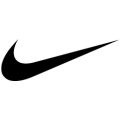
Nike
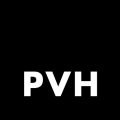
Phillips-Van Heusen Corporation
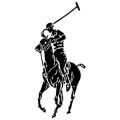
Ralph Lauren
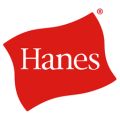
Hanesbrands
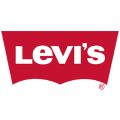
Levi Strauss
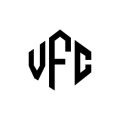
VF Corporation

GAP
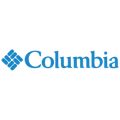
Columbia Sportswear
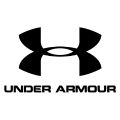
Under Outfitters
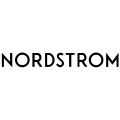
Nordstrom
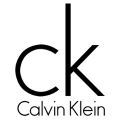
Calvin Klein
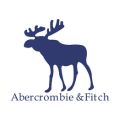
Abercrombie & Fitch
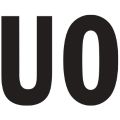
Urban Outfitters

American eagle
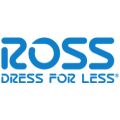
Ross Stores
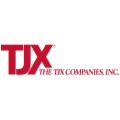
The TJX Companies
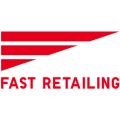
Fast Retailing
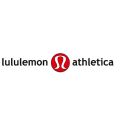
Lululemon Athletica
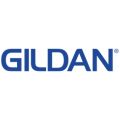
Gildan Activewear
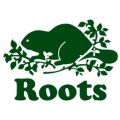
Roots
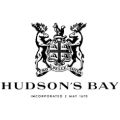
Hudson’s Bay Company
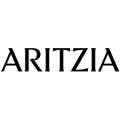
Aritzia
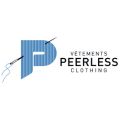
Peerless Clothing
